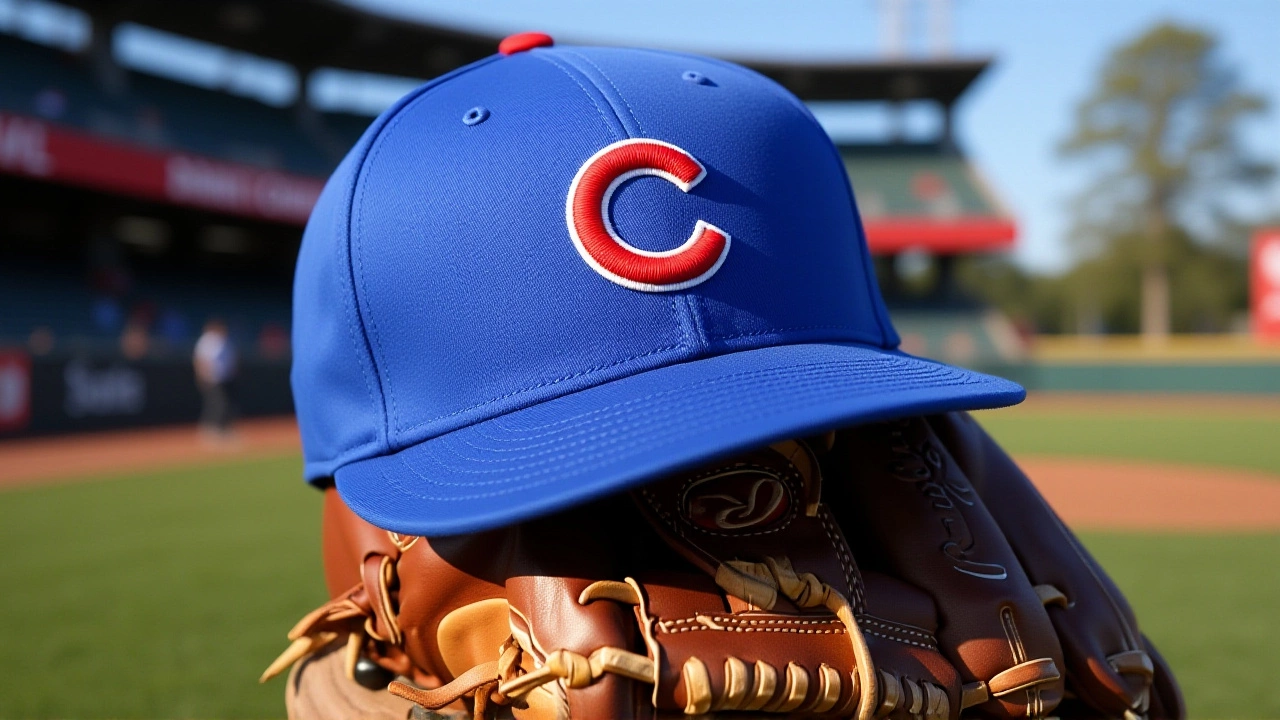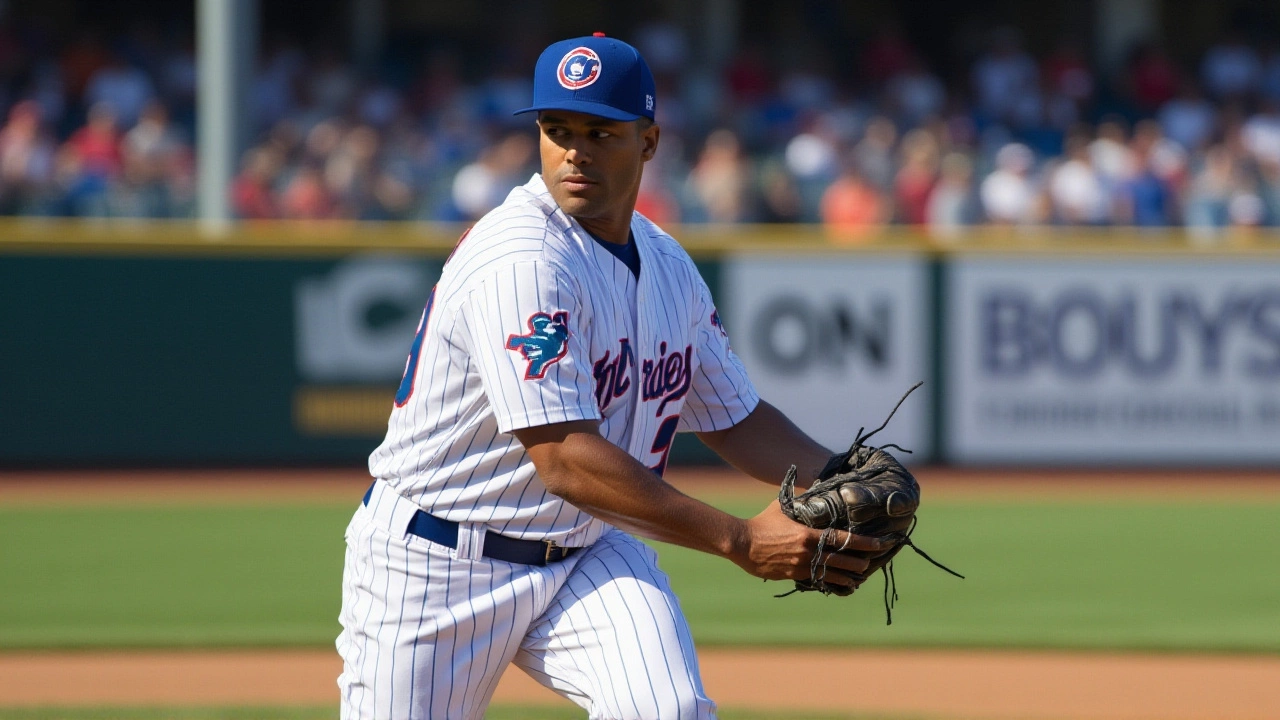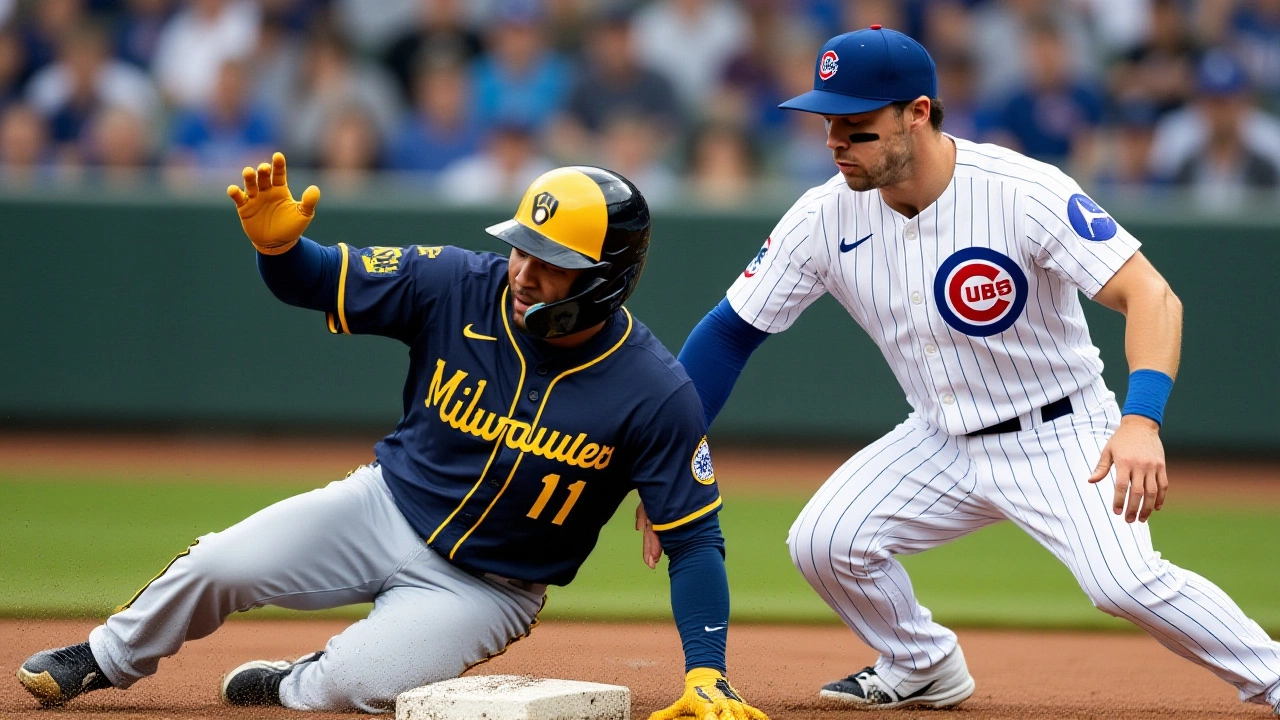Cubs Open 2026 at Wrigley vs Nationals Amid MLB’s New All‑Team Schedule
 Oct, 3 2025
Oct, 3 2025
When Major League Baseball unveiled its 2026 regular‑season schedule on Tuesday morning, the Chicago Cubs learned they’ll kick off the year at Wrigley Field on Thursday, March 26, 2026, against the Washington Nationals. The opening series marks a shift from the old, division‑centric start‑ups that fans have come to expect, and it sets the tone for a schedule where every club faces all 29 opponents at least once.
New MLB Scheduling Format: Every Team Meets Every Other
The league’s revamped format, rolled out for the 2026 season, eliminates the historic split where interleague games were a rarity. Instead, each of the thirty clubs now plays a minimum of three games against every other franchise, expanding the total interleague exposure from roughly 20% of the schedule to over 60%. This change follows a two‑year pilot that showed higher attendance for former “novelty” matchups.
Baseball analyst Jared Diamond of Baseball Prospectus notes, “Fans have been clamoring for the chance to see rare opponents more often. The new format delivers that, but it also compresses divisional battles into a tighter window later in the year.”
Cubs’ Opening Stretch at Home
After the opening day win (or loss) against Washington, the Cubs will stay in Chicago for two more games, completing a three‑game home series on March 28‑29. The next opponent, the Los Angeles Angels, arrives for a three‑game set from March 30 through April 1, giving Chicago fans a taste of the West Coast.
In total, the Cubs host sixteen games in March and April, a relatively heavy home load that the organization hopes will boost early‑season ticket sales. According to Cubs’ senior vice president of ticketing, Maria Alvarez, "We’ve seen a 12% rise in season‑ticket renewals when we front‑load home games, especially when the matchups include popular interleague foes like the Angels."
Statistically, the early schedule provides only three divisional contests – two against the St. Louis Cardinals and one versus the Milwaukee Brewers – a stark contrast to the usual six‑plus division games in the first month.
First Road Trip: From Cleveland to Tampa Bay
Friday, April 3, the Cubs will depart for their first away stretch, landing in Cleveland to meet the Cleveland Guardians in a three‑game series (April 3‑5). Manager John Schneider told reporters, "A quick trip to the Midwest keeps our rotation fresh, and the Guardians have a solid pitching staff that will test our young arms."
Just two days later, the squad heads south to Tampa Bay for three games against the Tampa Bay Rays, a matchup that many fans label a "power‑hitting showdown" because both clubs sport deep lineups.
Mid‑Season Highlight: Four‑Game Series with Philadelphia
April 20‑23 brings a rare four‑game home stand against the Philadelphia Phillies. The series is the only four‑game block for the Cubs in the first two months, giving Chicago a chance to host a historic rivalry that has seen 150+ games dating back to 1876.
Baseball historian Laura Kessler points out, "Even though the schedule now scatters division games, a four‑game Phillies set still feels like a nod to tradition – and the fans love it."

Season‑Ending Showdown in Boston
The schedule’s most symbolic moment lands at the tail end of the regular season: a three‑game series in Boston against the Boston Red Sox. Historically, Cubs‑Red Sox clashes have been few and far between; the last regular‑season meeting before 2026 was in 2018. The renewed finale could rekindle old‑time drama, especially if both teams are battling for a wild‑card spot.
Red Sox manager Alex Cora remarked, "Playing the Cubs to close the year adds a layer of excitement for our fans. It’s a classic rivalry that we’re eager to revive."
Why the New Schedule Matters to Fans
- Every team sees all 29 opponents each season, boosting ticket demand for once‑rare visits.
- Early‑season interleague games give smaller markets (like Chicago) more marquee matchups.
- Divisional battles are compressed into a tighter window, potentially increasing the stakes of September games.
- Broadcast networks benefit from a broader array of high‑profile games, which can improve national ratings.
What’s Next: Tracking the 2026 Campaign
The next major date on the Cubs’ calendar is the opening day of the regular season on March 26, 2026. Ticket offices are already reporting a surge in sales for the March‑April home stand, especially for the Angels and Phillies series. Meanwhile, analysts will be watching how the compressed divisional schedule influences the race for the National League Central.
For season‑ticket holders, the club has rolled out a new mobile app that syncs with the schedule, offering real‑time alerts for any weather‑related changes – a useful tool given the early‑season rainouts that have plagued Chicago in the past.
Key Facts
Major takeaways from the 2026 Cubs schedule:
- Opening day: March 26, 2026 vs Washington Nationals at Wrigley Field.
- First three‑game home series: Nationals (Mar 26‑28) and Angels (Mar 30‑Apr 1).
- Only three divisional games in the first month.
- Sixteen home games during March‑April, including a four‑game Phillies set (Apr 20‑23).
- Season‑ending three‑game series vs Boston Red Sox.

Frequently Asked Questions
How will the new MLB schedule affect Cubs fans in Chicago?
Fans will enjoy a richer variety of opponents at Wrigley Field, with interleague teams like the Angels and Rays visiting early in the season. Ticket demand is expected to rise, and the front‑loaded home games could boost early‑season revenue for the club.
Why are there only three divisional games in the first month?
The league’s new format spreads division matchups across the calendar to make room for every team to play each other. This means early‑season games focus on interleague rivals, pushing the bulk of Central Division clashes into the middle and later parts of the season.
What is the significance of the season‑ending Red Sox series?
Cubs‑Red Sox games have been rare since the leagues split in 1903. Meeting in Boston to close the regular season revives a historic rivalry and could have playoff implications if either club is fighting for a wild‑card berth.
Will the new schedule impact the Cubs’ chances for a postseason run?
A tighter divisional window could intensify the September push, while early interleague games may help the Cubs test their roster against varied pitching styles. analysts caution that depth will be key, as the Cubs will travel more frequently across the country than in previous years.
How does the schedule affect broadcast coverage?
National networks now have a broader slate of marquee matchups each week, allowing them to rotate high‑profile games like Cubs‑Angels or Cubs‑Phillies across prime time slots, potentially increasing viewership and advertising revenue.